Clavier Companion Interview - March/April 2013
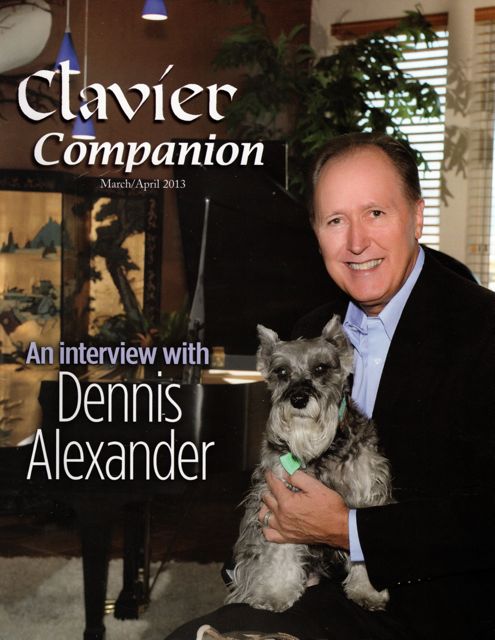
This interview was conducted by Pete Jutras, Editor-in-Chief of Clavier Companion. I often show this magazine at my workshops and always urge teachers to subscribe! Each issue is packed with wonderful ideas for teaching all aspects of piano, and I consider it an INDISPENSABLEpart of every piano teacher's studio. To order, simply go to: www.claviercompanion.com Today, you can even just subscribe to the digital edition, which often includes supplementary recordings and videos.
Introduction by Pete Jutras:
Last summer, my son Andrew learned a Dennis Alexander composition entitled "Full Moon Rising" (from Simply Sensational, Book 1). Like many students playing many Dennis Alexander pieces before him, he was completely enthralled by the sound of the piece. As a teacher (and in this case a parent), I reaped the invaluable benefits of having an intrinsically motivated student. Andrew wanted to play the piece over and over again, and he went to the piano on his own many times a day to do so. As he mastered the piece in its original setting, he explored by playing it in different registers and starting on different notes. With very little experience in transposition, he spent a few days figuring out the entire piece in F Major (the original is in C), completely on his own. This is the magic of a Dennis Alexander composition: quality music that can captivate attention, spark imagination, and inspire hard work and dedication.
With more than 350 publications and co-authorship of a best-selling method to his credit, Dennis Alexander is one of our profession's most beloved composers. He is also an accomplished performer and an influential pedagogue with decades of experience in both collegiate and independent teaching. Dennis was kind enough to sit down with Clavier Companion and share some of his thoughts on teaching and composing.
(Click on each picture to enlarge.)
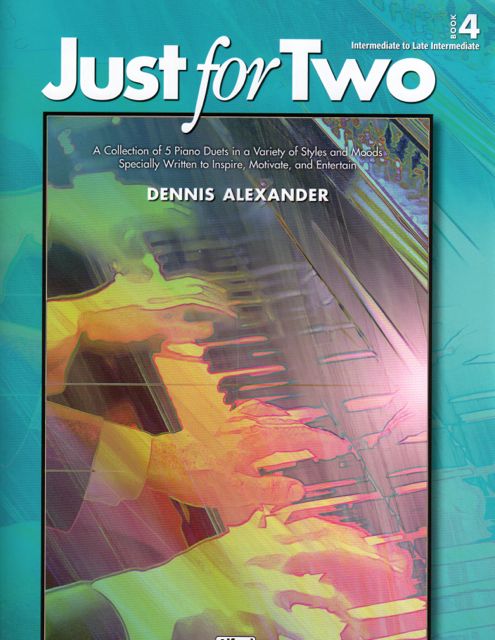
What do you remember from your first piano lessons?
My first piano teacher was a magical and quite wonderful woman by the name of Lila McCune. She lived in a very small town called Monteuma, in southwest Kansas, just 10 miles from my hometown, Copeland,which had a population of 200. I'll always remember my first piano lesson with her-- she had the brightest red lips I had ever seen, and, in her very southern drawl, (she had been raised in Mississippi), she said 'Waaaayl-- we're gonna have SO much fun together!" I couldn't believe how lucky I was-- here I was, sitting in front of a big grand piano (I was seven years old and had never seen a grand piano before), with a teacher from a 'foreign country', and she was telling me that we're going to have so much fun together!
She was right-- every lesson was great fun because she often sat down next to me and improvised a delightful duet part to go along with my little five-finger melodies. As a child, I remember that she was always happy, smiling, and eager to make those thirty minutes with me totally fun and exciting. When she made up those duet parts and performed along with me, I couldn't believe how wonderful I sounded, and it motivated me to no end-- I couldn't wait to get back the following week! Now, when I look back on those early lessons, I realize that what she was really teaching me was (1) music is always in motion-- once you start a piece, you don't stop; (2) the importance of listening, not only to myself but to her as well; (3) the art of beautiful choreography-- I always had to do what she did with her arm and hand gestures: opening and closing gestures, dramatic releases, etc.; and (4) that rhythmical precision was paramount to a good performance. I'll always be grateful to her for making those early musical experiences so inspiring and motivational. I can't imagine early level lessons any other way now!

How do we teach students to interpret music and perform artistically? Can this be done at a young age?
I've always believed in training the young pianist to play artistically from the very beginning. For me, delving into the child's imagination is so very important. I like to ask lots of leading questions about the music a student is learning, such as, 'Why do you think this piece is called 'The Cantankerous Kangaroo?" 'What do you think 'cantankerous' means? Where are the sounds in this piece that sound 'cantankerous' to you? I fear that too many teachers spend most of the lesson on very specific 'terminology' issues that relate to rhythm, reading, technique, etc. and miss out on the more creative and imaginative aspects of music making. All of these elements need to be dealt with, but appealing to a child's imagination invariably brings about a better performance, good sound, and more expressive qualities.
Several years ago, I did a series of books entitled Keys to Artistic Performance with my good friend and co-author Ingrid Clarfield. The books cover three levels-- from early intermediate to late intermediate/early advanced, and the series is designed to teach students the skills that will transform average performances into polished, artistic ones. Much of the repertoire is by standard, classical composers, but I have also written numerous compositions that highlight the various 'keys' of artistic playing, including color, pedaling, rubato, characterization, and choreography. Both Ingrid and I believe that young students need to have a good descriptive vocabulary at their disposal-- they need to be able to describe the appropriate character of each piece they are playing. I often tell students that they need to be able to paint a picture with the sounds that they make with their fingers, hands, arms and body-- it all goes together to create an overall, artistic impression.
Dennis Alexander with Keys to Artistic Performance co-author Ingrid Clarfield.
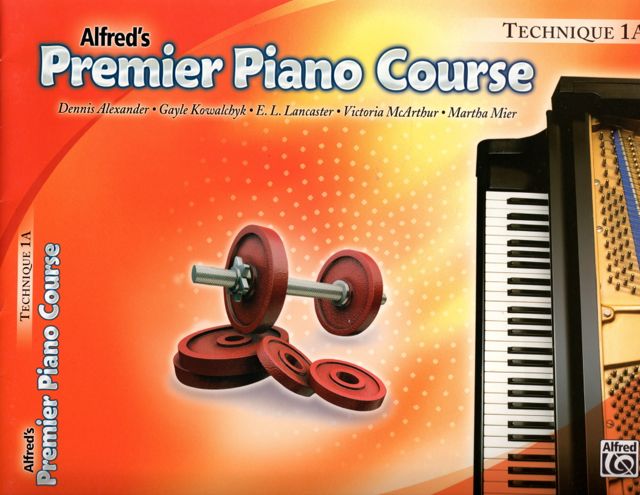
What are some important musical principles that you teach to very young students?
Well, in addition to what I just described, I feel that the teaching of an adequate and musical technique is paramount! The whole purpose of technique is to allow a student to express the musical details within any composition, and this involves having the physical ability to control any aspect of technique required by the repertoire. In our 'Technique Books' for Alfred's Premier Piano Course, we teach numerous technical concepts to beginners in the form of 'technique tools' at each level. The very young child needs to understand two- and three-note slurs, finger weight vs. arm weight, finger independence, basic wrist rotation, legato vs. staccato, how to balance melody and accompaniment, and how to shape a musical phrase, which for me means learning how to discover the 'heart' of each phrase. From the very beginning, it's so critical to insure that the young pianist is playing naturally, freely, with beautiful tone, and with artistic and appropriate gestures. A good teacher is going to be one who watches everything and insists that the student stay on the correct path! My motto as a teacher has always been, 'the more you expect, the more you get back." I have very high expectations of my students, but try to balance those expectations with love, nurturing, and lots of positive feedback.
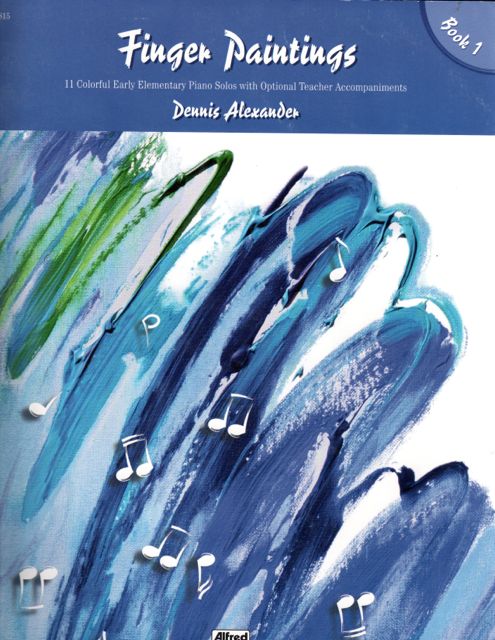
How do you teach students to find their own artistic voices?
As a teacher, I feel that students will eventually discover their own 'artistic voices' if they develop keen senses of listening. Teaching beginners how to listen is one of the most important skills a teacher can share! In the elementary stages, this is done inch by inch, step by step with the most basic types of listening exercises. But once students are at the late-elementary stage and higher, it's important for them to learn how to decipher good vs. poor phrasing, balance, articulation, pedaling, etc., by listening to the teacher demonstrate. For me, having a teacher who can demonstrate all of these aspects is very important, especially for the young student whose artistic voice is just being discovered. Of course, just one of the side benefits of good ear training and listening is memory security. Students who have not been taught how to listen tend to rely solely on finger-memory, and, as repertoire difficulty increases, this can be very dangerous.

Has your teaching changed over the years? If so, how?
That's an interesting question! For so many years, my primary teaching focus was on students at the University of Montana who were either majoring in piano performance or perhaps were pursuing a Bachelor of Arts or Music Education degree with piano as the major instrument. Then when I retired from the University and moved to southern California, I found myself still wanting to teach, so I established a small private studio and taught students of all ages. My composing work with Alfred Music Publishing took up the bulk of my time, but I loved teaching and didn't want to eliminate that aspect of my career. During my time in California, I had the opportunity to teach piano pedagogy at Cal State Northridge and Cal State Fullerton. Then, when I made the decision to move to Albuquerque six years ago, I continued to teach a small number of students. I currently teach only adults.
I can't really say that my teaching 'principles' have changed all that much-- I still focus on teaching students how to practice and how to achieve a relaxed technique, along with concepts of appropriate choreography and artistic performance. These principles are important at every level-- from beginning through advanced. I feel that my biggest challenge as a teacher today is being able to keep my adult students motivated! When I had lots of college students, they were always spurred on by constant performances, competitions, or simply peer pressure. Today, I find I need to work a little harder to keep my adult students focused, energized, and inspired-- this happens by finding just the right repertoire and maintaining a good sense of humor combined with lots of patience!
Dennis Alexander gives a workshop for teachers in South Korea, 2010
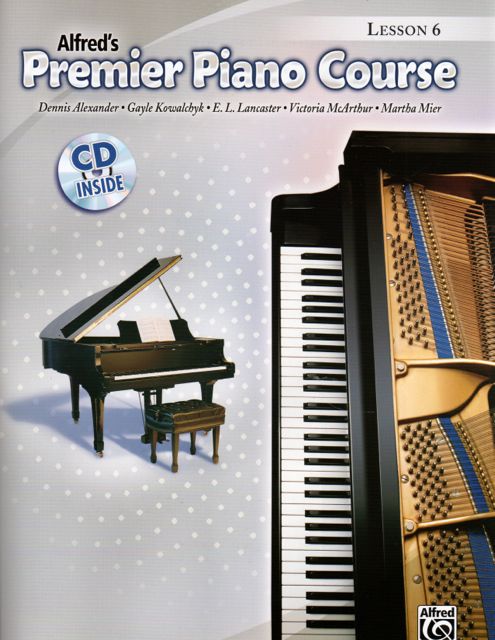
Did working on the 'Alfred Premier Piano Course' have an influence on your compositional style?
Writing the music for this new method was a supreme challenge for me, and I'm quite sure that my co-author Martha Mier shares my sentiments! I'm not sure that working on this course had a big influence on my overall compositional style, but I can promise that it made me even more aware of the importance of leveling and being excruciatingly careful about every tiny detail that needed to coincide with each pedagogical aspect of the course. There were numerous times when I had to completely rethink my creative energy and thought process for a piece, due to the pedagogical limitations within that particular level (as dictated by what had been outlined by the other three 'pedagogical team' co-authors). I think it made me stretch my imagination further as a composer, because I always had to come up with material that sounded musical and fresh and that also did not sound like a typical method piece. Teachers keep telling us how much they love the music in this method, and that so many of the pieces work beautifully for festivals, competitions, and recitals. I've always felt that no piano method is any better than the music it contains, so it is always very gratifying to hear that teachers, students, and parents are all enjoying the music so much.
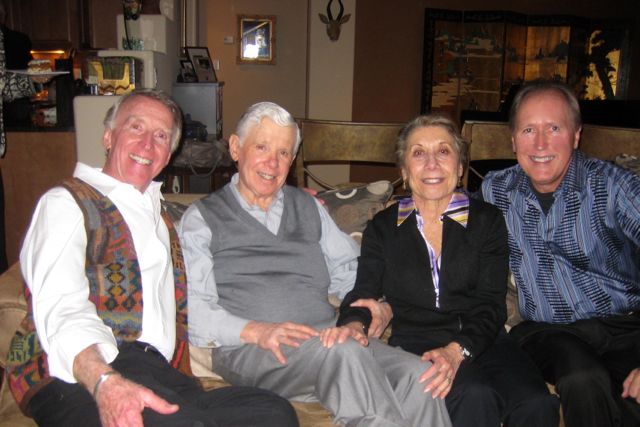
How did your career as a composer of educational materials really begin?
This is actually an amazing story, and one that would probably never happen today! In the fall of 1985, my friend Amanda Vick Lethco was in Montana presenting workshops forAlfred's Basic Piano Library. Over dinner one evening, she asked me if I would consider helping her and Willard Palmer promote their new method. At first I was very reluctant-- typically workshops were given by method authors. After more urging from Amanda, I flew out to California the following summer and met with Morty Manus, President of Alfred, who was most kind and gracious. A tour through their offices convinced me that I would enjoy being a part of the Alfred 'family'.
A short time later, Morty asked me if I would consider writing the duet books to correlate with their method, as Willard Palmer didn't have the time to devote to them. I was honored that he would ask me to compose, but I told him in all honesty that I had never composed music before! He said 'Why not'? And my response was 'because no one had ever asked me'! Morty felt that I would have more credibility with the teachers if I had something published, so at his urging I jumped into the deep end with both feet and started composing all of the duet books that correlated with Alfred's Basic Piano Library! Luckily, Willard, Morty, and Amanda liked what I wrote and this turned out to be the beginning of a new career for me as a composer of educational piano music. I'll always be grateful to Morty for taking a chance with a totally unknown person so many years ago!
Dennis Alexander with his partner Bill Cox (left) and Morty and Iris Manus (center).
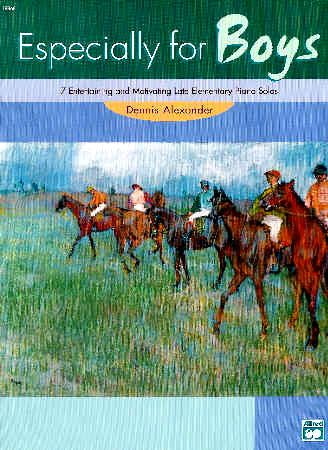
Do your compositions start with pedagogical principles or musical ideas? For example, in your collection Especially for Boys-- did those pieces start with existing musical ideas that you thought would appeal to boys, or did you start by thinking about what boys would like and then creating the musical ideas?
Well, that depends on the type of book or piece I'm composing. For example, when I was writing repertoire for Alfred's Premier Course, everything was developed from pedagogical principles, so the biggest challenge for me was making sure that the pedagogical goal for each piece was matched by the musicality that I also wished to achieve. At the lower levels, this musicality was mostly found in the teacher's accompaniment because the student parts were so minimal. But in the upper levels, I worked very hard to make each piece as musical as possible, given the pedagogical goals that also had to be met.
In Especially for Boys, I definitely tried to come up with titles that might be fun for boys at the elementary level and then the repertoire evolved from those particular images. As an example, a piece in that book is called 'Frogs and Snakes'. I worked to create musical images of snakes slithering along the ground (eighthnote five-finger legato patterns), mixed in with frog 'sounds' and images of leaps, with the left hand crossing over the right. It all became a wonderful technical exercise, but it also had lots of musicality. I always feel that composing a new piece is rather like putting together a giant jigsaw puzzle. The pieces for the puzzle are all in my head somewhere, and I just need to put them all together to form the best musical 'picture' possible!
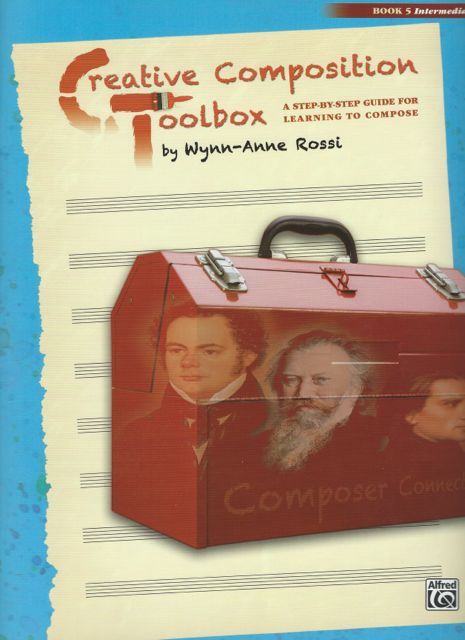
Do you have tips for teachers wishing to teach composition?
When I taught privately in Irvine, CA, I had several students who were interested in taking composition lessons in addition to their piano lessons. They were bright, young minds, and while I was amazed with their creative abilities, it was clear that they had little understanding of form, or the ability to take just one or two ideas and expand them into a two- or three-page work. For teachers who have an interest in teaching composition, I would encourage them to ask their students to study numerous good pedagogical pieces by well-known composers and to analyze how the pieces are constructed. What makes a good melody line, and how does the composer develop an opening motive? Help them discover that 'less is more'-- so often, young composers get so excited about all the 'ideas' that pour out of their heads that they try to cram too many different things into a single composition, rather than being content to develop one or two very good themes.
In addition, check out some of the excellent materials that are available today for teaching composition to young students. Alfred publishes numerous materials, among them: Composing at the Keys by Sue Shannon (two books geared to the very young composer); Composition Books by Valerie Cisler & Deanna Walker-Tipps that correlate with Alfred's Basic Piano Library; and a brand new series of six books by Wynn-Anne Rossi called Creative Composition Toolbox that goes from early-elementary through late-intermediate levels. I would also encourage teachers to take a look at another new publication by Carol Klose, Piano Teacher's Guide to Creative Composition,published by Hal Leonard. All of these materials are written by wonderful and talented composers who are also dedicated teachers.
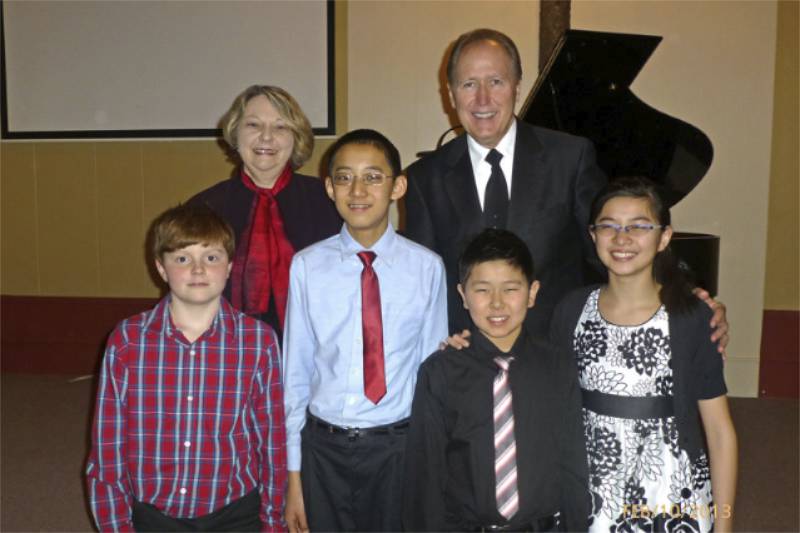
What would you say to today's pedagogy students, or to young teachers just starting a career?
I would tell them that they're entering one of the most fulfilling and satisfying vocations anyone could choose! When I reflect back on more than forty-five years of teaching, I think about all of the young people whom I have had the honor and pleasure of teaching, and how satisfying it has been to see so many of these young pianists become young "artists." Many of them are very successful and inspiring teachers today-- either in a private studio, or within a college or university system. I'm truly so very proud to be able to call them "former students!" Of course, many of those younger students also chose not to major in music, but are still enjoying their musical knowledge and piano skills as adults. For all of them, I'm quite convinced that the study of music has made them better human beings-- and that this art form has taught them to be more sensitive and caring to the world around them. There's a lot to the saying, "I teach-- therefore I am the future!" Certainly, I would remind them that they won't get rich teaching, but that they will be rewarded in so many other ways that are often far more meaningful than what they might receive from other professions. When we teach, we hopefully give young people a gift that lasts a lifetime, and that gift is truly one that just keeps on giving.
With former student Molly Morrison whom I taught at the University of Montana from 1972-1976 and some of her wonderful young students (and my "grand-students") who performed a beautiful concert in Montana last year.
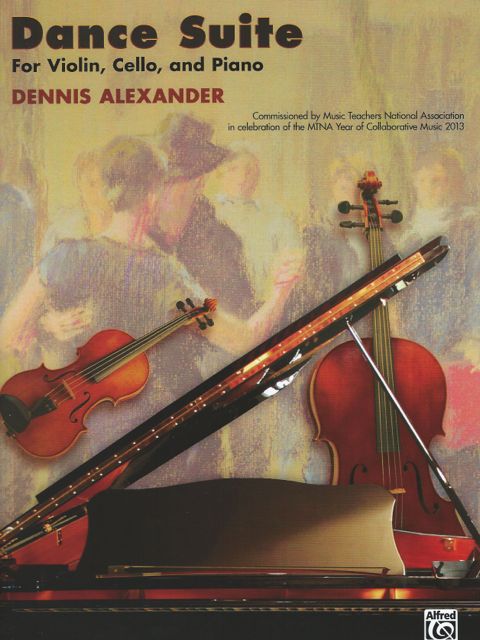
Do you have any new projects on the horizon?
Well, ironically enough, I'm currently working on new duet books to correlate with Alfred's Premier Piano Course. Since my career as a composer began with duet books to go with a piano method, it's rather nostalgic to be doing the exact same thing over twenty-five years later for a brand new method for which I'm a co-author! I also recently finished a project with a wonderful and very talented teacher friend here in Albuquerque, Amy Greer. It's a collection of pieces for young students to learn by rote. We both believe that students love learning pieces that have easy patterns but sound sophisticated, and this project is going to be loads of fun for teachers to explore with students of all ages!
A couple of other projects "off the beaten path" include a trio for piano, violin, and cello that was commissioned by MTNA for the 2013 national conference in Anaheim, CA. This work was inspired by a recent love affair with tango music-- which is quite alive, rich, and plentiful in Albuquerque, NM! The first movement is an "Introduction-- Tango" and the second movement is a "Valse brillante." When I taught at the University of Montana for twenty-four years, I often collaborated with string players. I've performed much of the repertoire for piano trio, and nearly all of the standard repertoire for violin and piano duo. Consequently, when I accepted this gracious invitation it only seemed natural to write for this medium. I also want to spend some time making more videos of my teaching library to include on my website, in addition to writing more pedagogical articles on my music to place on the "teaching tips" section of the website. In addition, I want to add a couple of more books to my Especially for Boys collection, along with a new recital suite in honor of beautiful Montana where I lived for so many years.
To hear the world premiere of this work, go to the "Video Releases" link on my website.
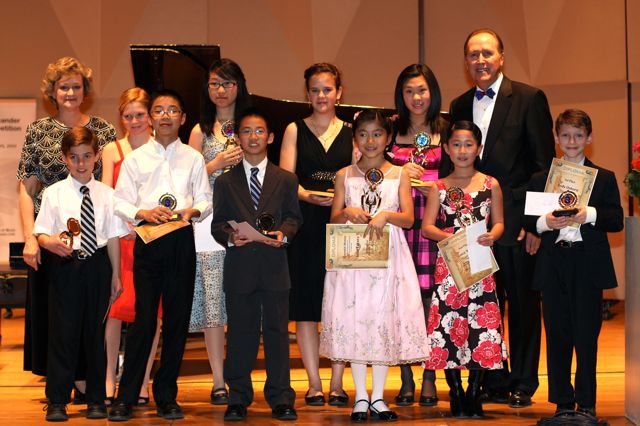
I've seen pictures on your website from the Dennis Alexander Piano Competition-- could you tell us a little about the competition and how it all began?
This has been such an exciting "adventure," and we're now entering into the third year of this annual event! It is the brainchild of Tatiana Vetrinskaya, the Director of the New Mexico School of Music, who felt that young pianists in the state needed an opportunity to showcase their extraordinary talent. She wanted the competition to evolve around a well-known, living American composer of educational music, and since I had recently moved to Albuquerque, i was honored to be involved. The response from students, teachers, and parents has been wonderful, and now we're working to get more corporate and individual funding to help cover the expenses as it continues to grow. There are currently four divisions, with students ranging from seven through fifteen years of age. Students can choose a piece of mine from a "required list" and must also perform another piece of their choosing in a contrasting style. All of the students who participate receive a medal, a beautiful certificate, a piece of music signed by me, (compliments of Alfred Music Publishing), and written comments from the judges. First, second, and third-place winners of each division all receive a trophy, a cash award, a special "performance diploma" and perform in a winners concert in the recital hall of the University of New Mexico. In addition, the first place winners in each division perform for me in a master class open to the public. Our goal is to give every student the opportunity to interact personally with a composer, while also making every single participant go away feeling like a "winner"!
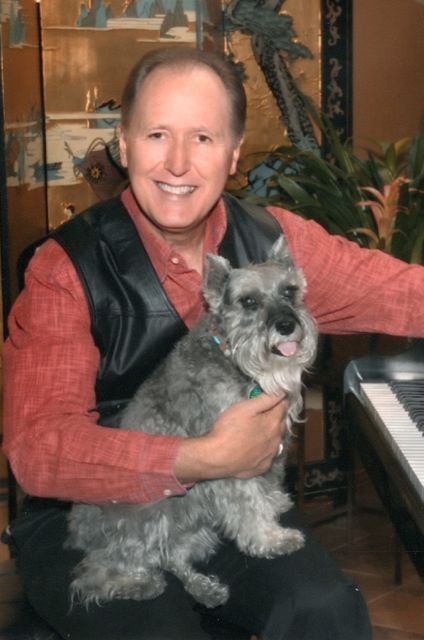
Finally, please tell us more about your beautiful companion on the cover!
Isn't she a beauty? Her name is Shelby (she's a mini-schnauzer), and she is truly the most adorable and wonderful little creature in the universe! I've had her since she was just a few months old, and she has been an official "greeter" for many students over the twelve years that she has been with me. I'll be the first to admit that I am a passionate dog lover in the first degree! (I love cats too, but dogs just seem to like me better.) Whenever the piano is being played, Shelby is immediately there, right next to the pedals and almost on top of my feet. She has always loved having students of all ages come to the house to see her-- they're not really here for a lesson, but they simply showed up to see HER, right? Dogs teach us SO much about life and living-- the beauty of unconditional love! There's a wonderful quote that I saw quite a long time ago, by Roger Caras, which reads: "Dogs are not our whole life, but they make our lives whole." Certainly, I feel so very blessed to have enjoyed a lifetime of listening to music, teaching music, and composing music. But always having a dog around the house has certainly made my life whole and infinitely more interesting!
